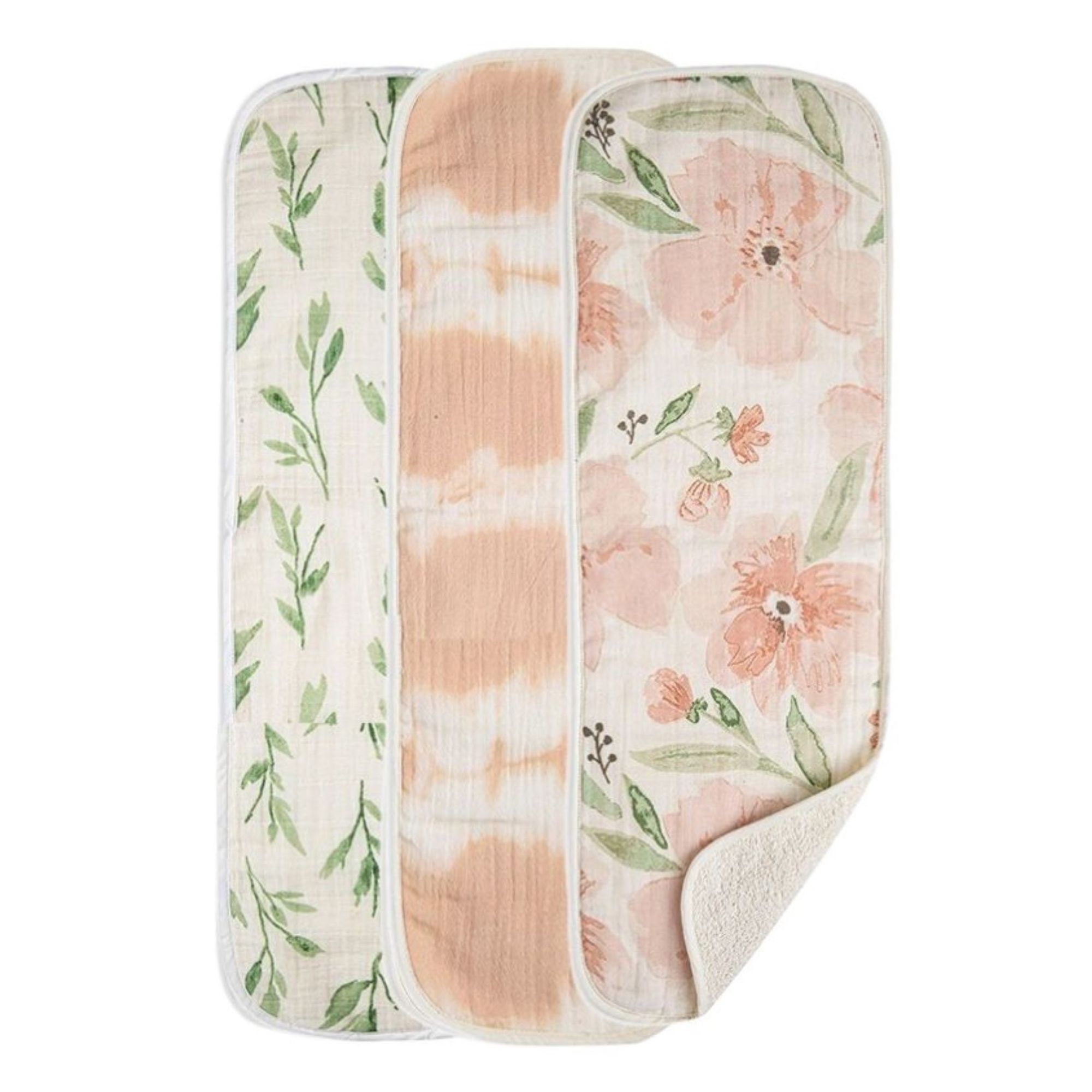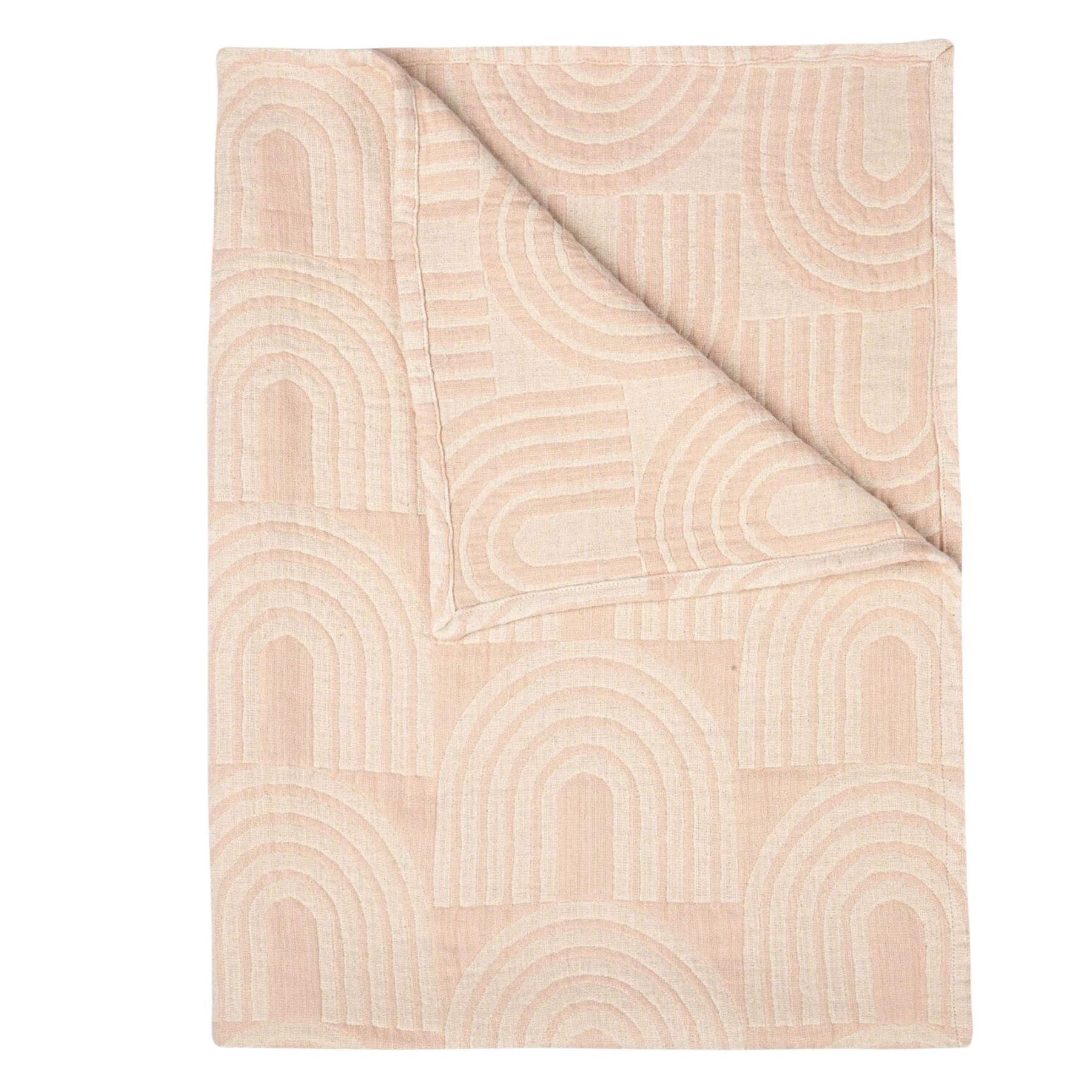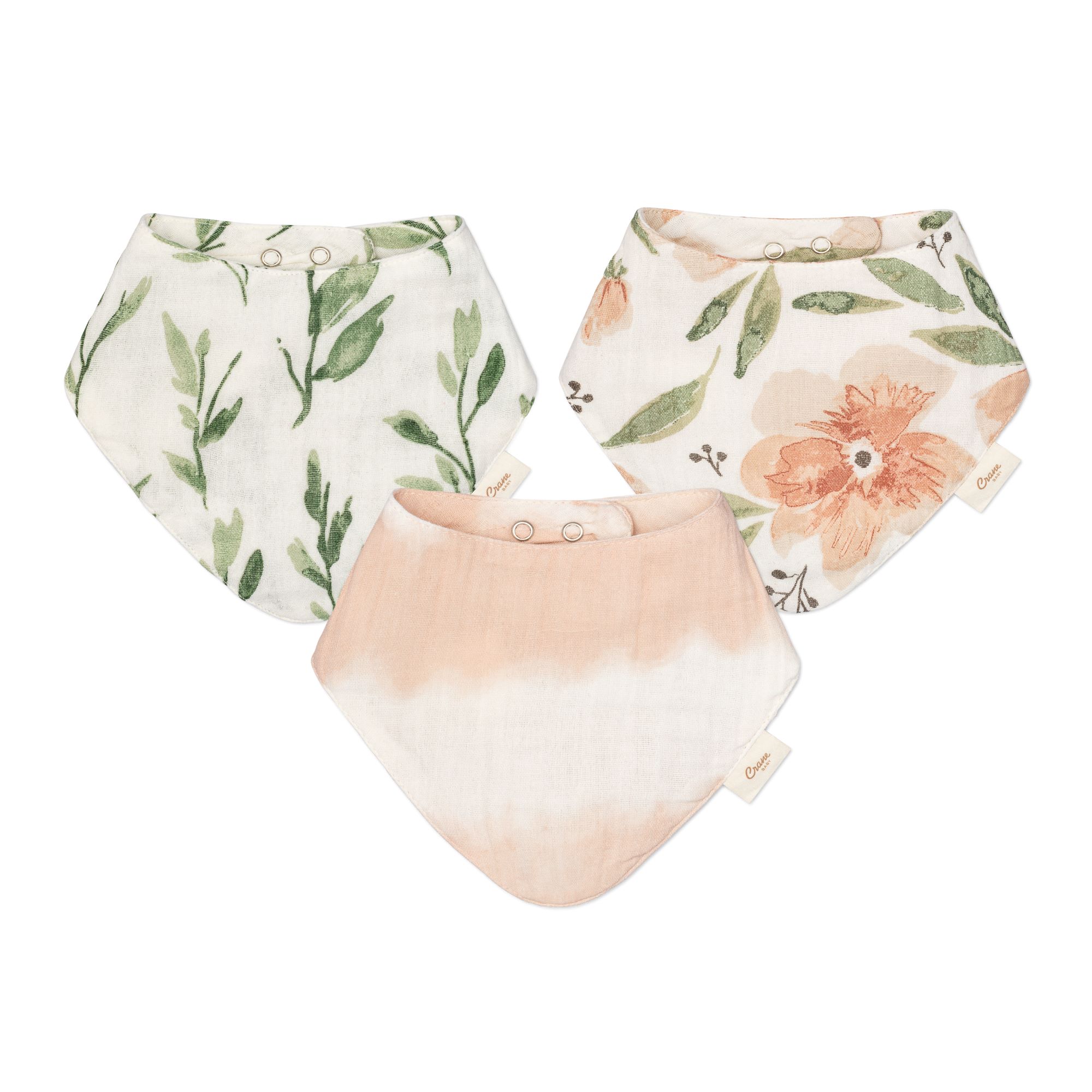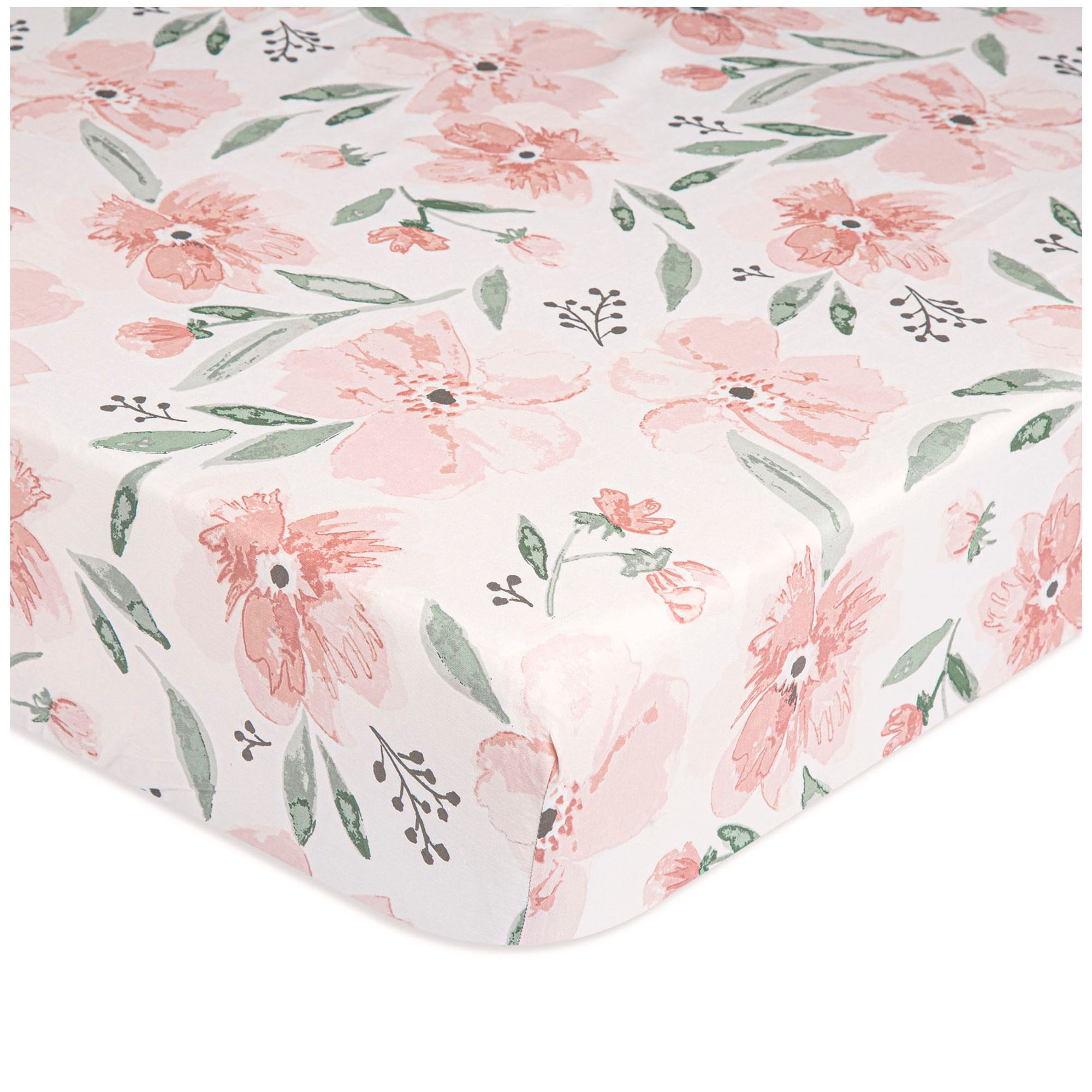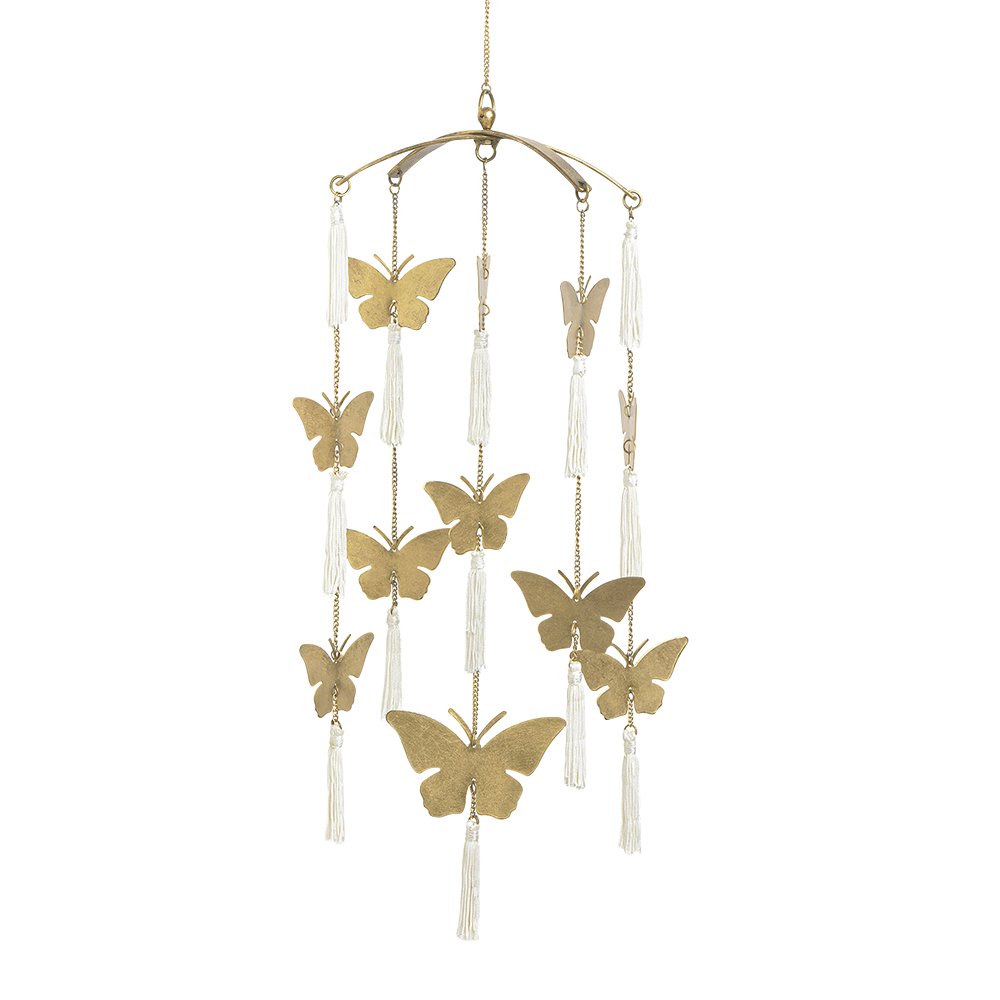Being a new parent comes with endless tasks, and keeping baby bedding clean often feels like just one more item on a long list. But clean baby crib sheets and bedding are more than just neat. They help protect delicate skin, reduce allergens and create a comfortable sleep space for your little one.
Keeping baby crib sheets and bedding clean is important, but it can be tricky to know how often to wash them and what’s really necessary. Let’s break down the essentials so maintaining a safe, healthy sleep space feels simple and manageable.

The Quick Answer: How Often to Wash Baby Bedding
Crib sheets, mattress protectors and blankets should generally be washed once or twice a week. This simple routine helps prevent the buildup on the sheets that can irritate a baby’s delicate skin or trigger breathing issues. Even if the bedding looks clean, these invisible irritants can accumulate over time.
Certain situations call for extra attention. Spit-ups, diaper blowouts or any visible messes mean it’s time to change the sheets immediately. Babies who sweat a lot, have sensitive skin or deal with eczema may also benefit from washing bedding more often.
Having multiple sets of durable baby crib sheets and fitted crib sheets makes this easier. A few extra sets allow for quick swaps during nighttime accidents or sudden messes, keeping the crib clean without adding stress to the daily routine.

Hidden Risks Lurking in Baby Bedding
Even when crib sheets and baby bedding look spotless, tiny threats can hide in the fabric. Dust mites, bacteria and allergens from sweat and spit-up can quietly build up, and these invisible irritants can affect a baby’s sensitive skin or even their breathing. Babies with eczema, allergies or other skin sensitivities are especially vulnerable, but all little ones benefit from a clean sleep environment.
Dust mites are one of the most common culprits. These microscopic creatures thrive in soft fabrics like crib sheets and blankets, and their waste can trigger irritation or allergic reactions. Bacteria from everyday use, such as from drool or sweat, can also accumulate over time, creating an environment that encourages odors or minor skin irritations. Even fungi can find a home in bedding that isn’t washed regularly, particularly if sheets are damp or blankets are stored while slightly wet.
Using high-quality baby crib sheets, fitted crib sheets and complete baby bedding sets makes keeping bedding clean easier. Durable fabrics hold up to frequent washing, along with extra sets for rotation, reducing the stress of constant laundry while keeping the crib hygienic. By understanding these hidden risks, parents can see why a consistent washing schedule, beyond just handling visible messes, is important for their baby’s health and comfort.

How to Wash Baby Bedding Safely: Step-by-Step
Keeping baby crib sheets, fitted crib sheets and other baby bedding clean doesn’t need to be complicated. Creating a simple, consistent routine can make a big difference for your baby’s health and comfort. Here’s a step-by-step approach to make washing easier and more effective:
Step 1: Choose the Right Detergent
Not all laundry detergents are safe for sensitive baby skin. Look for hypoallergenic, fragrance-free and dye-free options. There are many detergents specifically made for babies, too! These prevent irritation and reduce the risk of eczema flare-ups. Many “free and clear” detergents work well, and some products labeled for babies can also be great choices. Using the right detergent keeps baby bedding soft, safe and comfortable against delicate skin.
Step 2: Set the Right Water Temperature and Cycle
Warm or hot water (check the care label) helps kill germs, bacteria and dust mites that can hide in crib sheets and blankets. A gentle cycle works for delicate fabrics, while a regular cycle can be used for sturdier sheets and bedding sets. For extra sanitation, washing at 60°C (140°F) is highly effective for removing allergens.
Step 3: Dry and Sanitize Properly
Dry baby bedding on a low heat setting to prevent shrinking and preserve fabric quality. You can also air-dry baby bedding in the sun, if you’d prefer. Hot water washing usually sanitizes bedding enough for regular use.

Real-World Laundry Tips for Exhausted Parents
Keeping up with baby laundry can feel endless, but a few practical habits make it much easier. One of the simplest strategies is the Three Sheet Rule: own at least three to five crib sheets. This gives plenty of backups for quick swaps after middle-of-the-night spills or unexpected diaper blowouts, so the crib stays clean without constant laundry runs.
Creating a quick-swap laundry station can also simplify life. Keep a hamper for soiled sheets, a gentle stain remover and a set of backup sheets ready to go. With this setup, even late-night messes can be handled efficiently.
When Should You Wash Baby Bedding More Often?
Some days call for extra attention to baby bedding. Beyond the usual weekly routine, there are situations where sheets, blankets and mattress protectors need more frequent washing:
- If the baby is sick: Colds, flu or stomach bugs can leave bedding full of germs, so it’s important to wash sheets right away.
- Hot, humid weather: Babies sweat more in warm conditions, which can make sheets damp and more prone to bacteria or odor.
- Eczema, allergies or sensitive skin: Frequent washing helps reduce irritants that can trigger flare-ups or rashes.
- Pets in the home: Even if pets aren’t in the crib, dander and hair can travel, so extra laundry keeps the sleep space cleaner.
- After diaper blowouts or large spit-ups: Any noticeable mess should be washed immediately to prevent bacteria and odors.

Keeping extra crib sheet sets and baby bedding sets on-hand makes managing these situations much easier. This helps you to maintain a clean and comfortable environment for your newborn crib sheets and baby crib bedding at all times.
Keeping baby crib sheets, fitted sheets and blankets clean is simple with the right routine and a few extra sets on-hand.
High-quality baby crib sheets and bedding, like those from Crane Baby, make frequent washing easier. Soft, durable and easy to swap, they help you maintain a fresh crib without adding stress. Stock up today and shop all your baby bedding needs at Crane Baby to make maintaining a fresh, healthy sleep space effortless.

Frequently Asked Questions
How often should you wash baby bedding?
Baby crib sheets, blankets and mattress protectors should generally be washed one to two times per week. This kind of routine helps prevent the buildup of bacteria, dust and allergens that can irritate sensitive skin or affect breathing. Sheets should always be changed immediately if they become soiled from spit-up, diaper leaks or spills.
How to sanitize baby bedding?
Regular washing with warm or hot water usually removes most germs and allergens. For extra sanitation, such as after a cold or flu, some sheets and blankets can be safely treated with a diluted bleach solution if the care instructions allow. High-quality bedding that holds up to frequent washing, like Crane Baby crib sheets, makes keeping bedding sanitary easier.
How often should you change baby bed sheets?
Sheets and bedding should be changed one to two times per week, or more often if they become visibly dirty. Keeping a few extra crib sheet sets on hand makes quick swaps easy, so the crib stays fresh without adding stress.
How many sets of sheets should you have for a baby?
Having three to five sets of crib sheets is ideal. This allows for rotation during regular washing and makes it simple to handle spills or messes without waiting for laundry to finish. Using complete baby bedding sets can simplify this process even further.
Do you wash sheets every time a baby spits up?
Small spit-ups that only affect a tiny area can usually wait until the next scheduled wash. Larger messes, or anything that soaks through to the mattress, should be cleaned immediately to prevent bacteria buildup and odors.
